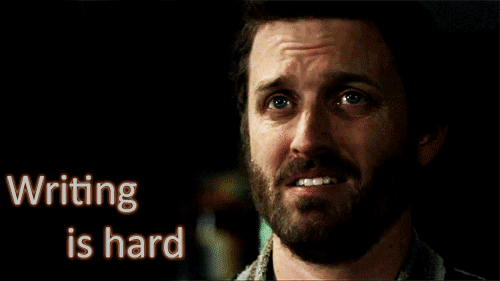What do you think?
Rate this book


237 pages, Paperback
First published January 1, 1998

“We should write because it is human nature to write. Writing claims our world. It makes it directly and specifically our own. We should write because humans are spiritual beings and writing is a powerful form of prayer and meditation, connecting us both to our own insights and to a higher and deeper level of inner guidance.
We should write because writing brings clarity and passion to the act of living. Writing is sensual, experiential, grounding. We should write because writing is good for the soul. We should write because writing yields us a body of work, a felt path through the world we live in.
We should write, above all, because we are writers, whether we call ourselves that or not.”

“Writing is like breathing, it's possible to learn to do it well, but the point is to do it no matter what.”

“If we eliminate the word "writer", if we just go back to writing as an act of listening and naming what we hear, some of the rules dissappear. There is an organic shape, a form-coming-into-form that is inherent in the thing we are observing, listening to, and trying to put on the page. It has rules of its own that it will reveal to us if we listen with attention. Shape does not need to be imposed. Shape is a part of what we are listening to. When we just let ourselves write, we get it "right".”

Writing is a lot like driving a country blacktop highway on a hot summer day. There is a wavery magical spot that shimmers on the horizon. You aim toward it. You speed to get there, and when you do, the "there" vanishes. You look up to see it again, shimmering in the distance. You write toward that. I suppose some people might call this unrequited love or dissatisfaction. I think it's something better.
I think it's anticipation. I think it's savoring. I think it's tasting a great meal from its scent on your nostrils. I do not have to eat freshly baked bread to love it. The scent is nearly as delicious, nearly as much the satisfaction as the thick slice of bread slathered with butter and homemade apricot jam.
The brain enjoys writing. It enjoys the act of naming things, the processes of association and discernment. Picking words is like picking apples: this one looks delicious.
When we are telling the truth about how we feel and what we see, we find very precise language with which to do it. Words do not fail us. When we are disguising to ourselves and others the exact nature of what we thought or how we felt, our prose goes mushy along with our thinking.
At its root, procrastination is an investment in fantasy. We are waiting for that mysterious and wonderful moment when we are not only going to be able to write, we are going to be able to write perfectly. The minute we become willing to write imperfectly, we become able to write.